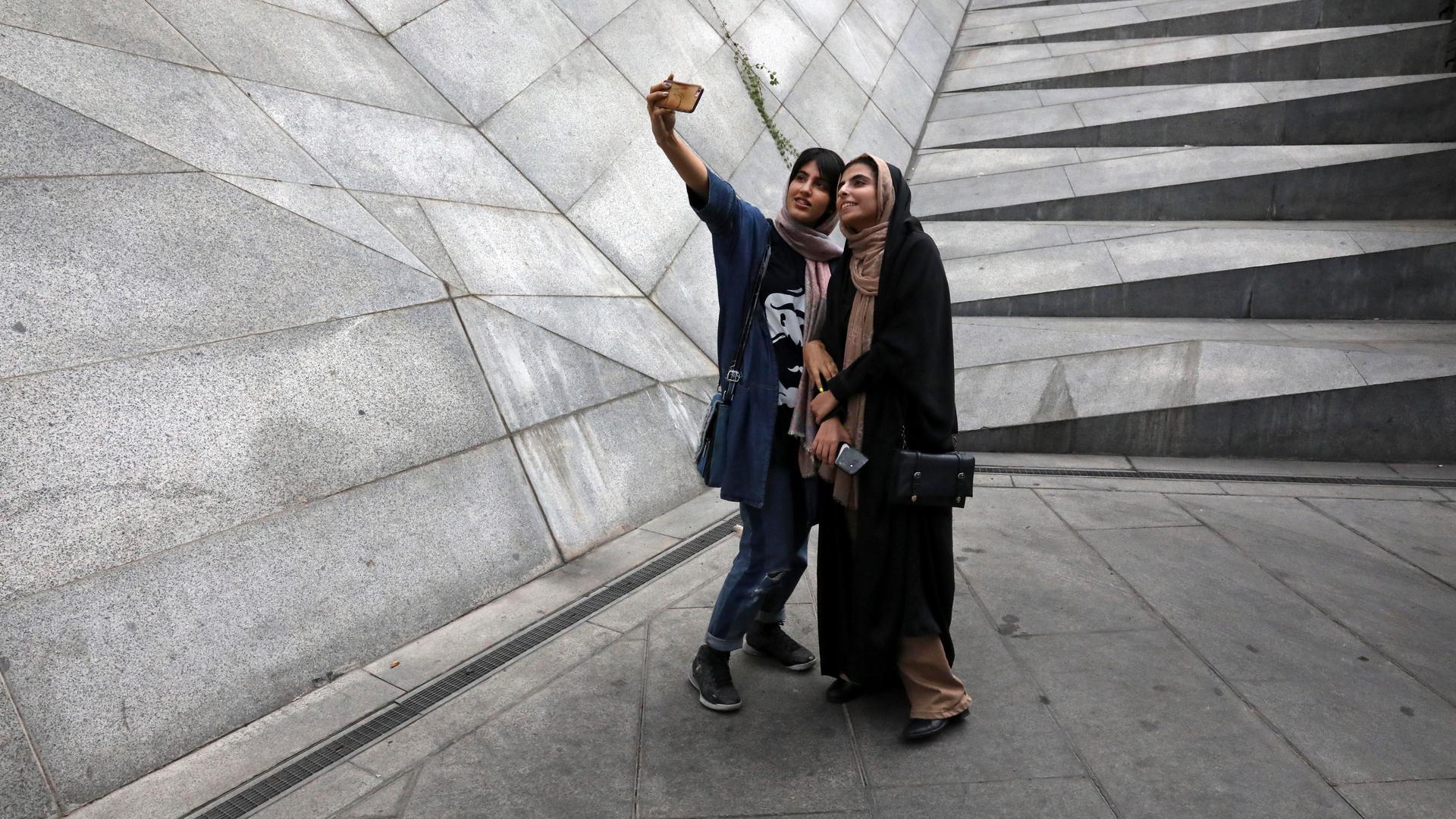For 14 years, Sara Omatali kept silent.
When it happened to her, she was a young, up-and-coming journalist living in Iran, a conservative country where sex is taboo and survivors of sexual assault and harassment are often told to keep quiet for the sake of their family’s honor.
“For many years I was worried about the consequences, and more importantly, about the reactions I will get from people around me,” she told The World.
Omatali also worried about losing her job, possible retaliation, and being blamed for what had happened to her.
“I knew that, by speaking up about what happened to me, I will be known as a troublemaker. And it would be added to all the limitations and barriers that I faced,” she said.
The incident haunts her to this day. She didn’t want to recount the details, but last month, she felt ready to speak out.
“I asked myself, ‘Why are you still silent?’ And I didn’t have a proper answer, so I decided to write about it on my Twitter account.”
In a series of posts, Omatali said a prominent artist sexually assaulted her when she went to interview him for a story she was writing on his exhibition. She was encouraged to speak up after seeing other Iranian women posting similar accounts online, said Omatali, who is now in her late 30s and lives in Washington, DC, where she works as an educator with a nonprofit. The artist has denied the accusations.
In recent days, dozens of Iranians, most of them women, have come forward on Twitter to share their stories of sexual harassment, assault and abuse. The posts have gone viral, sparking public outrage in Iran and abroad. People are posting under the Farsi hashtags نه-یعنی-نه#, or “no means no,” and نه-به-تجاوز#, or “no to rape.” Some women’s rights activists see an opening to normalize public discussion around sexual harassment and abuse. And some of the posts have prompted officials in Iran to take action — in a way that is more public than ever before.
In one case that seems to have inspired the viral movement, several women accused a bookstore owner in Tehran of inviting them to his home, where he drugged and sexually assaulted them. This week, Tehran’s police chief said the bookstore owner has been arrested and has confessed to his crimes. The official urged other survivors to come forward.
And many have heeded that advice, according to Leila Rahimi, a lawyer in Tehran. In an interview with The World, Rahimi said she has been getting a flood of calls from individuals who want to file complaints. She said she is offering pro bono legal help to those who need it.
Rahimi said the recent Twitter posts show that attitudes toward reporting sexual abuse are slowly changing in Iran.
“The younger generation is starting to be more open about discussing sexual abuse and harassment. In the past, survivors were often told to just keep quiet about it.”
“The younger generation is starting to be more open about discussing sexual abuse and harassment,” she said. “In the past, survivors were often told to just keep quiet about it.”
There are no reliable statistics on the number of sexual assault cases in Iran. One sociologist estimates more than 80 percent of cases go unreported. Social stigma and victim-blaming, he said, play a big role in silencing survivors.
Related: As Iran arrests Instagram influencers, some seek safety abroad
Legal expert Pegah Banihashemi thinks Iran must do two things for the situation to improve: start teaching sex education in schools and update laws to define sexual harassment, as well as various forms of rape, as criminal offenses (right now only rape of a woman by a man is officially recognized).
Banihashemi is encouraged to see young women in Iran coming forward and speaking out despite all the challenges.
She says the social media outpouring will help educate people and normalize discussions about sexual violence and harassment.
“The fact that these women have spoken out is a major first step,” she said. “These are discussions that we haven’t had openly in our society, and I am sure the fire that these women have started will not die out any time soon.”
Meanwhile, in the absence of formal education about healthy sexual behavior, activists are stepping in. They are using the momentum from the recent social media posts to raise awareness online. A group of Iranian women put together a video about consent.
“If a woman is wearing a revealing outfit,” one woman says, “it doesn’t mean she’s interested in sleeping with you.” Another says, “If she comes to your home for a visit, she’s not giving you the green light.”
Other speakers go on to describe different scenarios and explain the concept of boundaries and what constitutes as sexual harassment.
Their main message? No means no.
